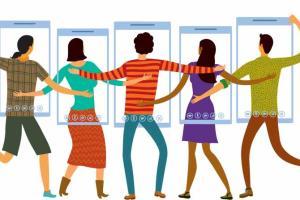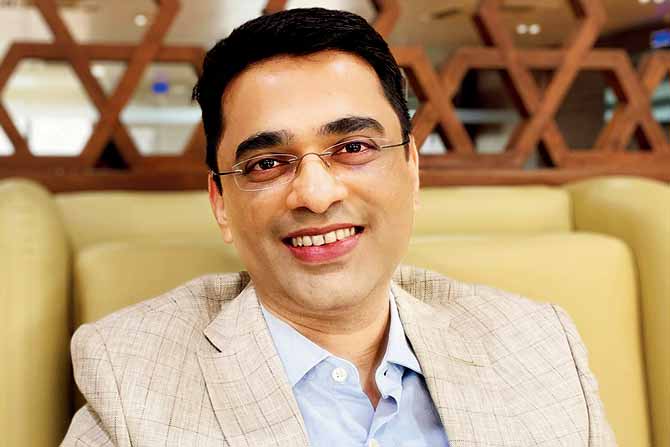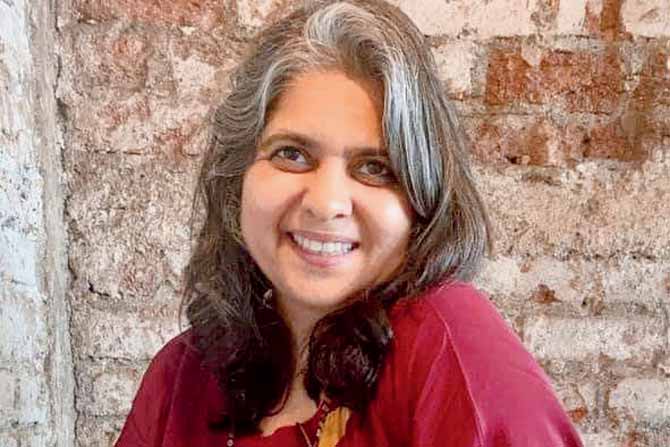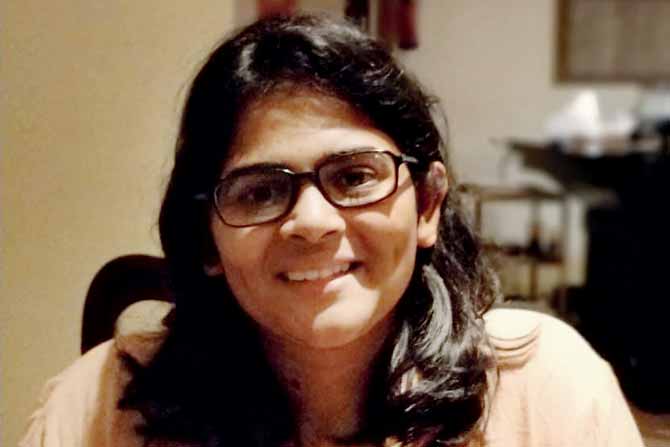support groups across the city made the virtual switch to cater to members, for some of whom reaching out was a matter of life and death. And they are hardly regretting it

For Mumbai-based psychotherapist Cheelu Chandran, the loneliness that the pandemic-induced lockdown brought along was not any different from the feeling she experienced a few years ago, when her children moved to Boston to study. "I was quite devastated then," she remembers. Somewhere around that time, Chandran had started an offline support group, The Emptiness, to help others like her. The group, she says, would meet once a month. "Somehow it took off and yet not, if you know what I mean, because, I was also dealing with my own emotions."
Cut to March this year, a lot many more people, sequestered in their homes because of COVID-19, were going through bouts of anxiety and loneliness. "I was having a difficult time myself, despite my partner being around. Many corporate jobs too, had broken boundaries, due to which people were clocking in 12 to 18 hours a day. It was all very overwhelming," says Chandran. After months of deliberation, she decided to revitalise the old group and renamed it Gather, Nature, Connect (GNC). "I wanted it to be an online, non-judgmental platform, where we could simply reach out as friends." GNC started four weeks ago, and since then, the group has been meeting every Saturday on Zoom. Here, they share their week's happenings, or life experiences. "It has really helped me make meaning of my own mind," Chandran shares.
ADVERTISEMENT

Cheelu Chandran
The role of support groups like GNC, have become all the more critical since the pandemic broke out. Though many have an online presence now, the challenges of reinventing virtually, when members are already dealing with inherent vulnerability and where proximity is the most important ice-breaker, means that the switch hasn't been an easy one.
In some cases, like that of Alcoholics Anonymous (AA), it was also a matter of life and death. Typically, AA conducts group meetings for alcoholics every day across multiple locations globally, either in schools, hospitals or related institutions. "For us, the transition was very important, because if we didn't, many of us would go back to where we were," says Ajay (name withheld), who looks after public information at AA. The community, hence, made the shift as early as March 26. "The initial few weeks were a bit of trial and error. The fellowship, in essence, is a largely traditional one. It's a lot of fun and banter, when you meet physically. There's a greater emotional connect. But, a month or two down the line, we realised that this [the pandemic] was here to stay and we had to adapt. Since then, we've had multiple meetings across timelines and platforms," he adds. In Mumbai there are at least 25 meetings being held daily, and for free, via only voice calls with end to end encryption. Video formats and recordings are discouraged to ensure anonymity. "It has been fun. We've celebrated online sobriety birthdays, had musical evenings, and even held seminars."
While those living in the metros had seamless access and availability to these meetings, there were a few for whom WiFi is still elusive, who had it tough. But, there were upsides. "What we noticed was that there were more women coming online, due to the anonymity factor," shares Ajay.
Another AA member says that the online meetings have now enabled access to people from different parts of the world recovering from alcoholism, and even connected them with the global community of AA. "Learning from the experience, strength and hope of respected international members is suddenly, albeit delightfully, within reach," he says.

Dr Prasad Dandekar
It's this ease of access that convinced the WeCan-Cancer Support Group at Sir HN Reliance Foundation Hospital, to host its first online session last week. Dr Prasad Dandekar, head of radiation oncology at the hospital, and convenor of the support group, said that when they started WeCan three years ago, patients responded positively. "But, we realised that only patients who were visiting the hospital for chemo or radiation therapy were attending. Those who had completed the treatment, did not find it feasible to make it for an hour-long session, even if it was once a month. Some had even returned to their hometowns. Yet, it didn't strike us that we could do this online." The pandemic, however, necessitated it. In a first, the online session saw people from different cities across the country, as well as one from near the Indo-Pakistan border, attend. Each session is split into three segments—human connection, learning and relaxation. "I was a little hesitant initially, but much to our surprise, it played out very smoothly. In our first online session, people discussed their personal pandemic experiences, after which I spoke about managing grief and its five stages. I saw some even take down notes. That means they were taking back something significant from the session."
During the lockdown, caregivers, who were cut off from friends and family whom they could otherwise rely on for support, were also pushed over the brink.

Bhavana Issar
Caregiver Saathi, founded by Bhavana Issar, which was started to create an eco-system of well-being for family members, who are the primary caregivers to their dear ones battling chronic medical conditions or terminal illness, decided to hold regular webinars in addition to online meetings. "Earlier, when we had these physical meetings, many would not show up, because it was just difficult to leave home, especially as they had people to look after. We thought we would be able to have much more attendance, with Zoom meetings. However, some still were not comfortable discussing their challenges, within earshot of their loved ones. The essential issue remains of guilt and shame with self-care, when caring for someone else. This is why we pivoted to additionally organising webinars with medical and health professionals and other experts, to enhance caregiving skills. It has been an encouraging experience."

Jehanzeb Baldiwala
Jehanzeb Baldiwala, director, mental health services at Ummeed Child Development Centre, says that therapy and routine are most important for children with development disabilities. And both took a beating in the lockdown, putting unnecessary pressure on the parents, especially mothers. "They needed some connection with other parents, in order to feel understood. Sometimes, it's not necessarily about finding solutions, but just voicing your concerns. The shared experience makes it bearable. And so, in the beginning, we had at least one online session every 15 days for them. Apart of this, we also had leisure activities planned out for the kids. Now, that things have eased out, we've moved back to having one session a month."
Strange times also call for quick planning. The Alternative Story, a mental health service, which for a while had been considering starting a Queer Support Group, finally took the leap during the lockdown. "We were almost supposed to start the physical meetings from March onwards, when the pandemic happened. We then had to regroup and decide how to do this virtually. That took some time, but we began in July," says Prarthana Sham, therapist with The Alternative Story, adding, "A lot of members had to go back and live in spaces that they would have otherwise not been comfortable in, like going back to family. They couldn't even come together in anyway, and be there for each other. Our intention was to make sure that this support group became that space, and that we as facilitators and members of the community ourselves, make sense of this experience."

Prarthana Sham
Sham says that in the future, they might continue the virtual sessions. "We might have to take a call on how to balance, both, but we will definitely continue with this."
Dr Dandekar says that the success of the WeCan meets has made them rethink how support groups should function. "While the online sessions will continue, the physical meetings will be less frequent. We might do that once every three months, because ultimately human connection is important too."
To connect
Gather, Nature, Connect
@gathernurtureconnect, Instagram
WeCan-Cancer Support Group rfh.wecan@rfhospital.org
Caregiver Saathi info@caregiversaathi.co.in
Queer Support Group, The Alternative Story hello@alternativestory.in
Alcoholics Anonymous, Mumbai 9920111772/8879968656
Ummeed Child Development Centre ummeed.org
Keep scrolling to read more news
Catch up on all the latest Mumbai news, crime news, current affairs, and a complete guide from food to things to do and events across Mumbai. Also download the new mid-day Android and iOS apps to get latest updates.
Mid-Day is now on Telegram. Click here to join our channel (@middayinfomedialtd) and stay updated with the latest news
 Subscribe today by clicking the link and stay updated with the latest news!" Click here!
Subscribe today by clicking the link and stay updated with the latest news!" Click here!







